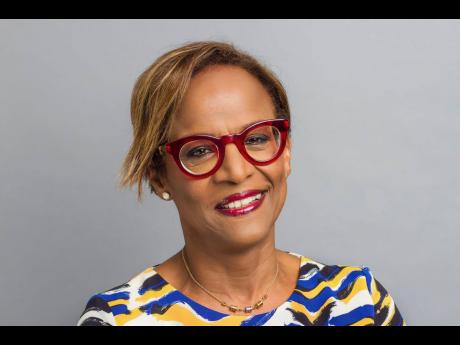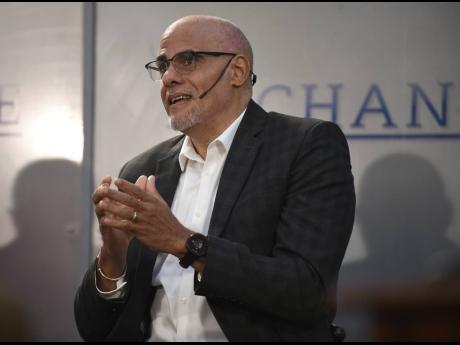Turner-Jones, PSOJ back IDB US$8b additional capital raise with reservations
Therese Turner-Jones, the outgoing Jamaica and Caribbean head of the Inter-American Development Bank, IDB, and the Private Sector Organisation of Jamaica, PSOJ, are supportive of a planned US$8 billion capital increase from the bank’s members,...
Therese Turner-Jones, the outgoing Jamaica and Caribbean head of the Inter-American Development Bank, IDB, and the Private Sector Organisation of Jamaica, PSOJ, are supportive of a planned US$8 billion capital increase from the bank’s members, which is one of the big agenda issues of bank president Mauricio Claver-Carone.
However, Turner-Jones and PSOJ President Keith Duncan are raising different concerns: affordability by member countries, and the need customisation of IDB policies, respectively.
The Caribbean economist – whose tenure as Jamaica’s country representative and general manager for the Caribbean was ended by Claver-Carone and is on administrative leave until her contract expires in March 2022 – says to be successful, the bank president must do a really good job of shopping the capital raise to all IDB shareholders, including selling it to Caribbean member countries and others whose economies are now being battered by the ill effects of the COVID-19 pandemic, having just started to recover from the 2008 financial recession.
Pointing out the return on investment for such new injection of capital, around US$300 for every US$1 put in, the development practitioner said the capital increase move represents a solid investment for Jamaica and the Caribbean region.
“If the bank has more capital, the allocation of resources to the Caribbean could be greater but the shareholders have to pay for that and Caribbean governments also have to be in a position to put more capital in, in order to extract more value from the institution. The return on that capital investment is quite impressive,” Turner-Jones said during an interview with the Financial Gleaner.
The capital raise, which Claver-Carone said in a previous interview he would be formally putting to IDB member countries at the bank’s annual shareholders meeting in March 2022, is a central plank of his administration, which started in October last year.
At his first annual meeting with the governing board of the IDB in Colombia in March 2021, the bank president floated the idea of upping the IDB’s available pool of loan capital from US$12 billion to US$20 billion a year. The bank’s most recent capital increase was in 2008.
Turner-Jones doesn’t believe the capital increase will be an automatic outcome, but one that could materialise if the proposal is sold properly.
“The president will have to do a really good job of selling a value proposition to not just the borrowing members, but also to the non-borrowing members, given where the global economy is right now with all the uncertainty of what’s happening. I don’t know that the major shareholders are ready for that, but I think putting a really good value proposition out there, the capital increase could benefit us in this region,” she said.
For PSOJ President Keith Duncan, while the increase pool of IDB funds would be a welcome development, he is of the view that the multilateral agency needs to develop and implement institutional policies and conditionalities that are more tailor-made for the individual countries of the Caribbean.
“The IDB has had a strong presence in the Caribbean and if more capital is raised from its membership, it should impact positively on Jamaica and the Caribbean region. However, what we want them to do is to look at their risk tolerance models to ensure that they are nuanced or customised for country-specific circumstances,” said Duncan.
Trumpeting its achievements, this week the IDB said it was looking to close out the calendar year US$19.5 billion in financing for Latin America and the Caribbean, the region where it is mandated to help finance private and public sector development projects through loans, equity investment and grants as well as to provide advisory and technical services. The nearly US$20 billion in financing for the year, the IDB statement said, represented the largest new investment of cash into the economies of Latin America and the Caribbean.
The bank has active portfolio in Jamaica of US$456 million in public sector loan-funded projects. The IDB did not give the value of Jamaican private sector loan and equity funding on its Jamaica web page.
The IDB is owned by 48 member countries with 26 borrowing members in Latin America and the Caribbean. The voting power of member countries is based on their subscription to the bank’s pool of ordinary capital.
Regional members must be members of the Organization of American States and non-regional members need to be members of the International Monetary Fund.


